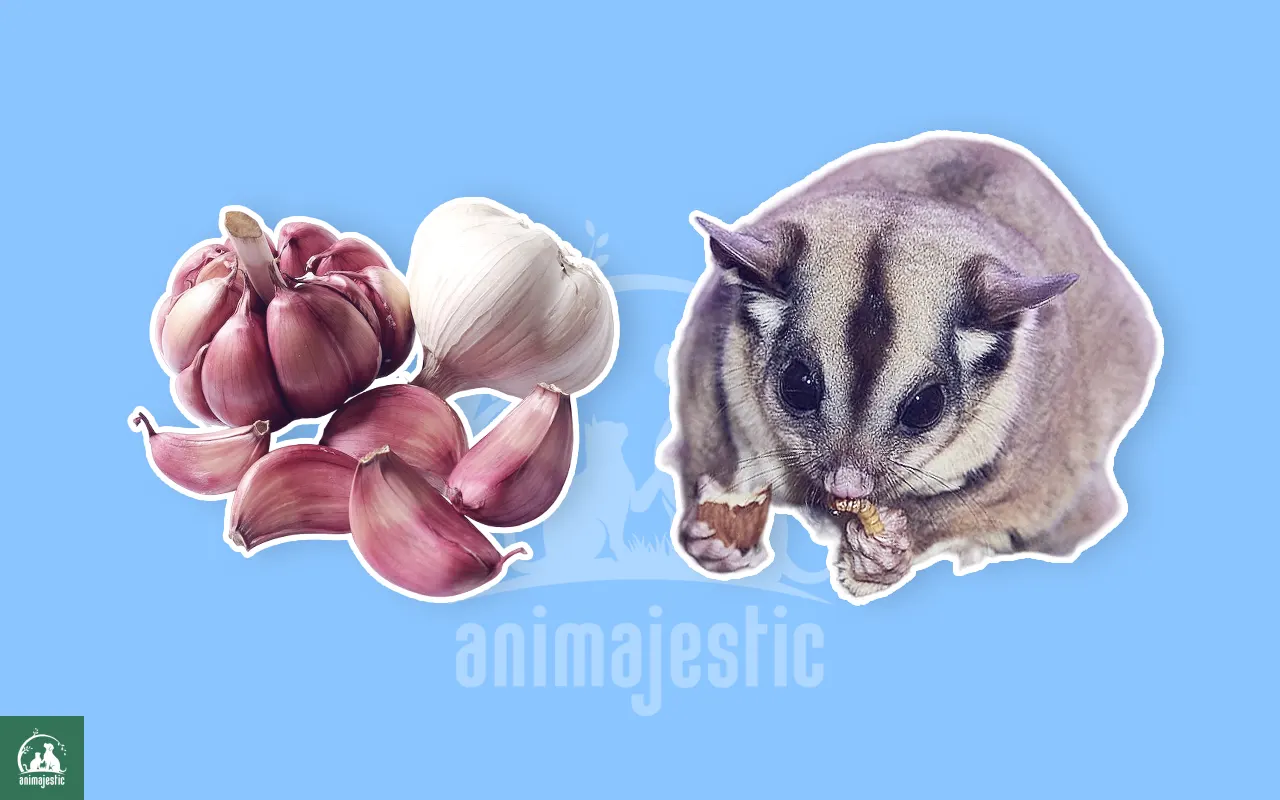As an exotic pet owner, it’s crucial to understand every aspect of your furry friend’s health and well-being. For sugar glider owners, in particular, getting the right dietary information is paramount.
A common question that arises among enthusiasts and current owners is whether or not these cute “marsupials” sugar gliders eat garlic. Let’s get into the details to find out.
The Sugar Glider: A Unique Pet With Unique Needs
Sugar gliders, the small marsupials with a penchant for soaring through the air, have captured the hearts of many pet enthusiasts. Native to the forests of Australia and New Guinea, these nocturnal creatures get their name from their love of sweets, including tree sap and nectar, and their ability to glide from tree to tree with their patagium, a skin membrane that extends from wrists to ankles.
As captivating as these little critters are, properly caring for a sugar glider requires a deep understanding of their dietary needs. A balanced diet is essential for their health and happiness, which is why knowing the dos and don’ts of sugar glider feeding is so important. And this is where the question of garlic comes in.
The Garlic Debate: Can Sugar Gliders Eat Garlic Safely?
To provide a comprehensive answer, we’ll need to look into the possible reasons behind this question and explore garlic’s place in the sugar glider diet.
What’s So Special About Garlic?
Garlic is well-known for its flavorful and aromatic qualities, as well as its numerous health benefits for humans. Rich in vitamins C, B6, and manganese, this allium vegetable can help reduce blood pressure, fight inflammation, and boost the immune system. For these reasons, it’s natural to wonder whether sugar gliders can also reap the benefits of this superfood.
Sugar Gliders and Garlic: A Toxic Mix
Unfortunately, the short answer to the question of whether sugar gliders can eat garlic is a resounding NO. Garlic contains certain compounds, such as allicin and sulfur-containing compounds, which are incredibly harmful to these small animals, even in tiny amounts.
When consumed by sugar gliders, garlic can lead to a host of health problems, including:
- Hemolytic anemia: This life-threatening condition occurs when the red blood cells are destroyed at a rapid rate, preventing them from carrying oxygen around the body. Garlic’s toxic compounds are known to cause this.
- Gastrointestinal upset: The strong chemical components in garlic can damage a sugar glider’s sensitive digestive system, leading to diarrhea, vomiting, and abdominal pain.
- Organ damage: Over time, even small amounts of garlic can damage a sugar glider’s liver and kidneys, compromising their overall health.
In light of these risks, it’s crucial to avoid feeding your sugar glider any garlic, no matter how enticing the potential health benefits for humans may be.
A Sugar Glider’s Ideal Diet: What to Focus On
Rather than dwelling on the dangers of garlic in a sugar glider’s diet, it’s essential to focus on providing the best nutritional balance for your beloved pet. The staples of a healthy sugar glider diet include:
- Fresh fruits: apples, pears, grapes, mango, kiwi, and berries
- Vegetables: sweet potatoes, carrots, leafy greens, and bell pepper
- Protein sources: lean cooked meats, boiled eggs, and insects like mealworms and crickets
- Nectar alternatives: prepared nectar solutions, offered sparingly to avoid excessive sugar intake
It’s important to remember that every sugar glider is unique, so consulting with an exotic pet veterinarian will provide invaluable guidance in tailoring the perfect diet plan.
Keeping Your Sugar Glider Garlic-Free
So, when it comes to sugar gliders and garlic, the message is clear: Keep them apart at all costs. By providing a diverse, balanced diet that’s customized to their individual needs, you’ll ensure a long, healthy, and happy life for your cherished sugar glider. If in doubt, consult a knowledgeable veterinarian. And remember, garlic is a risk not worth taking with your furry friend’s delicate health.
